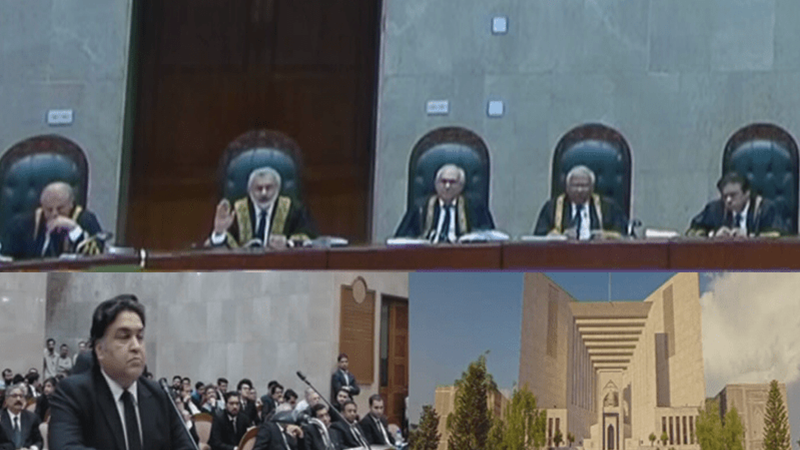The Supreme Court of Pakistan delved into a contentious case on Monday regarding the allocation of reserved seats, sparking a heated debate over the legitimacy of independent candidates affiliated with the ruling Pakistan Tehreek-e-Insaf (PTI) party. Justice Munib Akhtar, presiding over the proceedings, lambasted what he termed a “cascading series of errors of law” committed by the Election Commission of Pakistan (ECP), which allegedly coerced PTI-backed candidates into assuming the status of independents.
The crux of the matter revolves around the eligibility of these candidates to claim reserved seats, particularly in light of their affiliation with the Sunni Ittehad Council (SIC). Justice Akhtar raised poignant questions regarding the rights of these candidates, asserting that they should not be denied reserved seats merely due to their association with the SIC.
The case stems from the aftermath of the February 8 elections, where PTI-backed candidates found themselves in a quandary after the party was stripped of its electoral symbol, the ‘bat’, in a Supreme Court ruling. In response, these candidates, who had won as independents, joined forces with the SIC, further complicating the issue of reserved seats.
The Election Commission, in a 4-1 verdict in March, ruled against allocating reserved seats to the SIC, citing legal deficiencies and violations of submission requirements for party lists. Consequently, the Commission decided to redistribute the seats among other parliamentary parties, triggering outcry and allegations of unconstitutional actions from the PTI camp.
In subsequent legal battles, including a plea dismissed by the Peshawar High Court, the SIC continued to challenge the ECP’s decision, leading to a suspension of victory notifications for 77 lawmakers by the Supreme Court. The ensuing legal wrangling underscored the deep-seated complexities surrounding electoral procedures and party affiliations in Pakistan’s political landscape.
During the latest hearing, a 13-member bench, comprising eminent justices, reconvened to deliberate on the case. Advocate Faisal Siddiqi, representing the SIC’s female candidates denied reserved seats, reiterated arguments challenging the ECP’s stance.
The proceedings, broadcast live on the Supreme Court’s website and YouTube channel, witnessed a robust exchange of legal arguments and judicial scrutiny. Justices dissected constitutional provisions, scrutinised the ECP’s decisions, and sought clarity on the legal status of the affected candidates.
As the case adjourned to June 24 for further deliberations, Justice Akhtar’s scathing critique of the ECP’s actions underscored the gravity of the issue at hand. The outcome of this legal battle could have far-reaching implications for Pakistan’s electoral processes and the rights of political parties and candidates alike.
